code
package org.example;
public class PatternSample {
static String formatter(Object o) {
String formatted = "unknown";
if (o instanceof Integer i) {
formatted = String.format("int %d", i);
} else if (o instanceof Long l) {
formatted = String.format("long %d", l);
} else if (o instanceof Double d) {
formatted = String.format("double %f", d);
} else if (o instanceof String s) {
formatted = String.format("String %s", s);
}
return formatted;
}
public static void main(String[] args) {
System.out.println(formatter("3.33"));
}
}
error message
java: pattern matching in instanceof is not supported in -source 8
